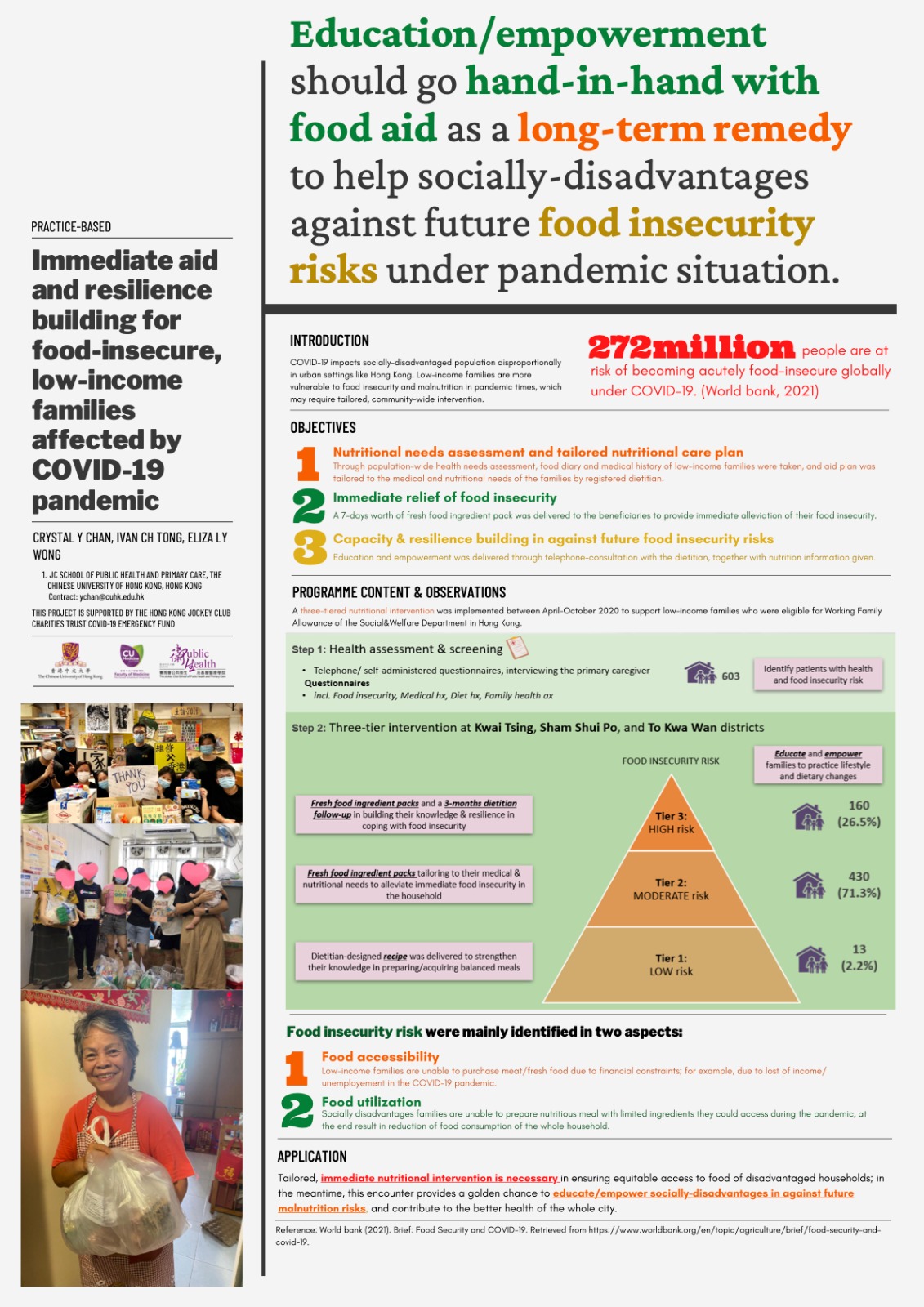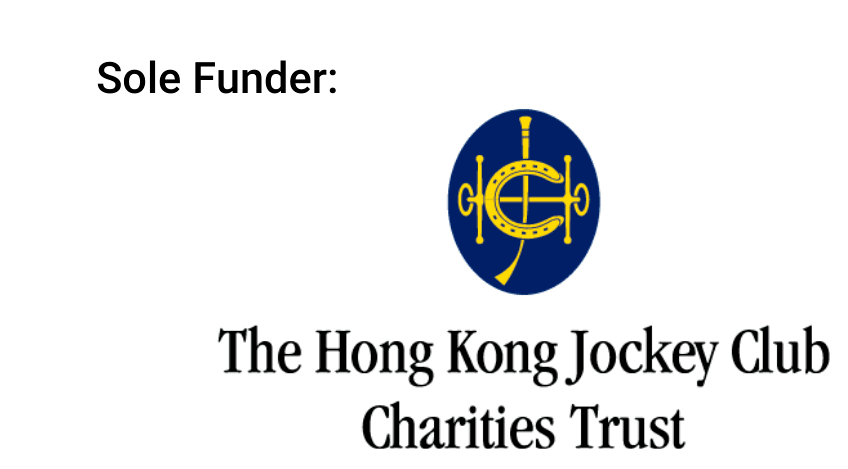Presenter 1: Immediate aid and resilience building for food-insecure, low-income families affected by COVID-19 pandemic

Title: Immediate aid and resilience building for food-insecure, low-income families affected by COVID-19 pandemic
Background: COVID-19 impacts socially-disadvantaged population disproportionally in urban settings like Hong Kong. Low-income families are more vulnerable to food insecurity and malnutrition in pandemic times, which may require tailored, community-wide intervention.
Objectives: To provide
1)nutritional needs assessment and tailored nutritional care plan;
2)immediate relief of food insecurity; and
3)capacity&resilience building in against future food insecurity risks for low-income families in Hong Kong.
Programme Content: A three-tiered nutritional intervention was implemented between April-October 2020 to support low-income families who were eligible for Working Family Allowance of the Social&Welfare Department in Hong Kong. Needs assessment was conducted online/via telephone interviews to understand the malnutrition risks of the families, and tailored nutritional care plan was delivered. For households with low food insecurity risk(Tier I), a dietitian-designed recipe was delivered to strengthen their knowledge in preparing/acquiring balanced meals during pandemic. For families with moderate(Tier II) to high food insecure risk(Tier III), food ingredient packs were delivered tailoring to their medical&nutritional needs, supported by a 3-months dietitian follow-up in building their knowledge&resilience in coping with food insecurity during times of economic difficulties(e.g. preparing nutritious meals using low-cost ingredients, choosing various options of food with limited budget and cooking facilities).
Observations: 603 families undertook our assessment as referred by five partnering non-government organizations serving sub-divided flat residents, public houses residents, and blinded and physically-disabled people in Kwai Tsing, Sham Shui Po, and To Kwa Wan districts. Among them, 590(97.8%) were moderately food insecure(Tier II) and 160(26.5%) were highly food insecure(Tier III). Food insecurity risk were mainly identified in two aspects: 1) accessibility (unable to purchase meat/fresh food due to financial constraints) and 2) utilization (unable to prepare nutritious meal with limited ingredients) through dietitian consultations. Education enables families to utilize existing food/community resources in building resilience against food insecurity.
Application: Tailored, immediate nutritional intervention is necessary in ensuring equitable access to food of disadvantaged households; ;in the meantime, this encounter provides a golden chance to educate/empower socially-disadvantages in against future malnutrition risks, and contribute to the better health of the whole city.


